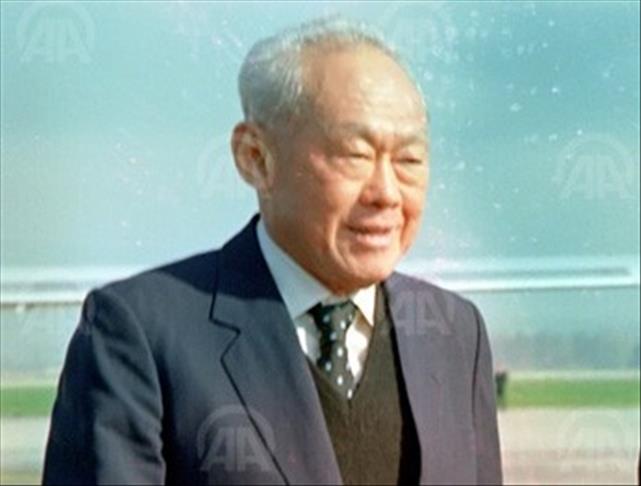Singapore’s founding premier Lee Kuan Yew passes away
Remembered for transforming British outpost into Southeast Asian powerhouse, defending limits on free speech and assembly

By P Prem Kumar
KUALA LUMPUR
Malaysia’s premier said Monday that his country was saddened by the passing of Singapore's founding Prime Minister Lee Kuan Yew in hospital at the age of 91.
Prime Minister Najib Razak said in a statement that Lee’s determination in transforming the country – which he ruled from 1959-1990, including during its independence from Britain and split from Malaysia – would ensure that his legacy would live on.
Expressing his condolences to Lee’s family including his son, Singapore’s current Prime Minister Lee Hsien Loong, Najib added: “Malaysia is committed to the future of our relationship with Singapore; to peace, stability and shared prosperity between our nations, and within ASEAN as a whole.”
A statement from the office of Singapore’s prime ministry said the younger Lee was "deeply grieved to announce the passing of Mr. Lee Kuan Yew, the founding prime minister of Singapore."
The former premier "passed away peacefully at the Singapore General Hospital today at 3.18 am," after suffering from severe pneumonia and being placed on life support.
The office said a state funeral would be organized Sunday at the National University of Singapore following the family’s private wake Monday-Tuesday.
A Cambridge-educated laywer, Lee Kuan Yew was known as a nation-builder involved in transforming the former British outpost into a regional economic powerhouse.
In 1954, he co-founded the People's Action Party, which has ruled Singapore since his election.
During his premiership, Singapore adopted policies that made it Southeast Asia's wealthiest and most competitive economy.
However, his rule has also drawn criticism for what some saw as high-handed tactics, including the detention of -- and filing of defamation lawsuits against -- political opponents and journalists.
Lee also defended limits on free speech and street protests as necessary for the maintenance of stability.
Following his death, Human Rights Watch issued a statement saying that while Lee’s “tremendous role” in Singapore’s economic development was beyond doubt, it had also taken a toll on human rights.
Phil Robertson, the group’s Asia deputy director, said: “Today’s restricted freedom of expression, self-censorship and stunted multi-party democracy is also a part of his legacy that Singapore now needs to overcome.”
He added: "Singapore still is, for all intents and purposes, a one-party state where political opponents are targeted and contrary views muzzled – and that too is a part of Lee Kuan Yew’s legacy that many of the new generation of Singaporeans are none too happy about."
After stepping down from his post as prime minister in 1990, Lee served as a senior government adviser for two decades. He was a "minister mentor" in his son’s Cabinet until their party’s poor performance in the 2011 general election.
In recent years, his public appearances had become less frequent and he was hospitalized in February 2013 due to an irregular heartbeat causing a brief stoppage of blood flow to part of his brain.
Anadolu Agency website contains only a portion of the news stories offered to subscribers in the AA News Broadcasting System (HAS), and in summarized form. Please contact us for subscription options.


